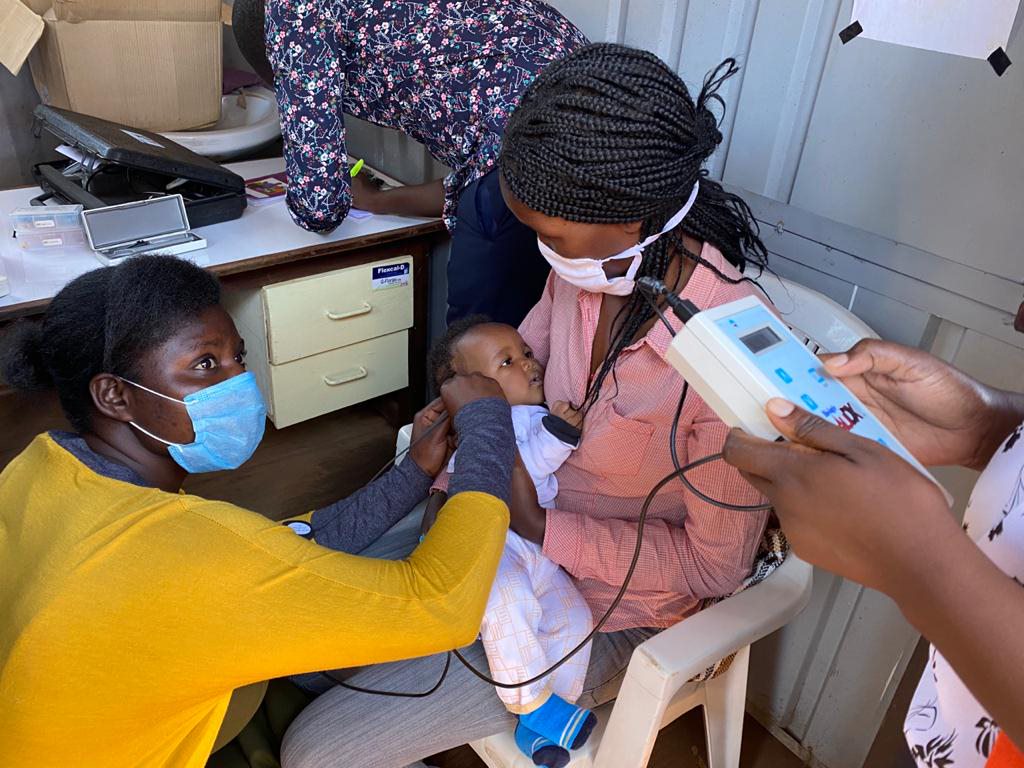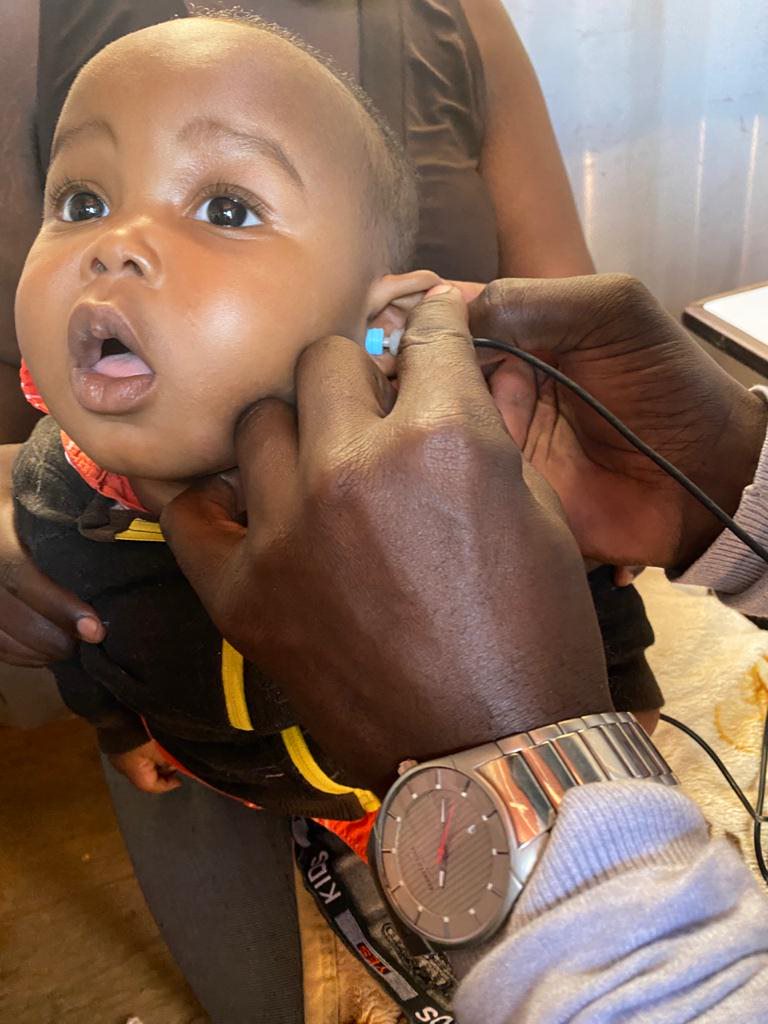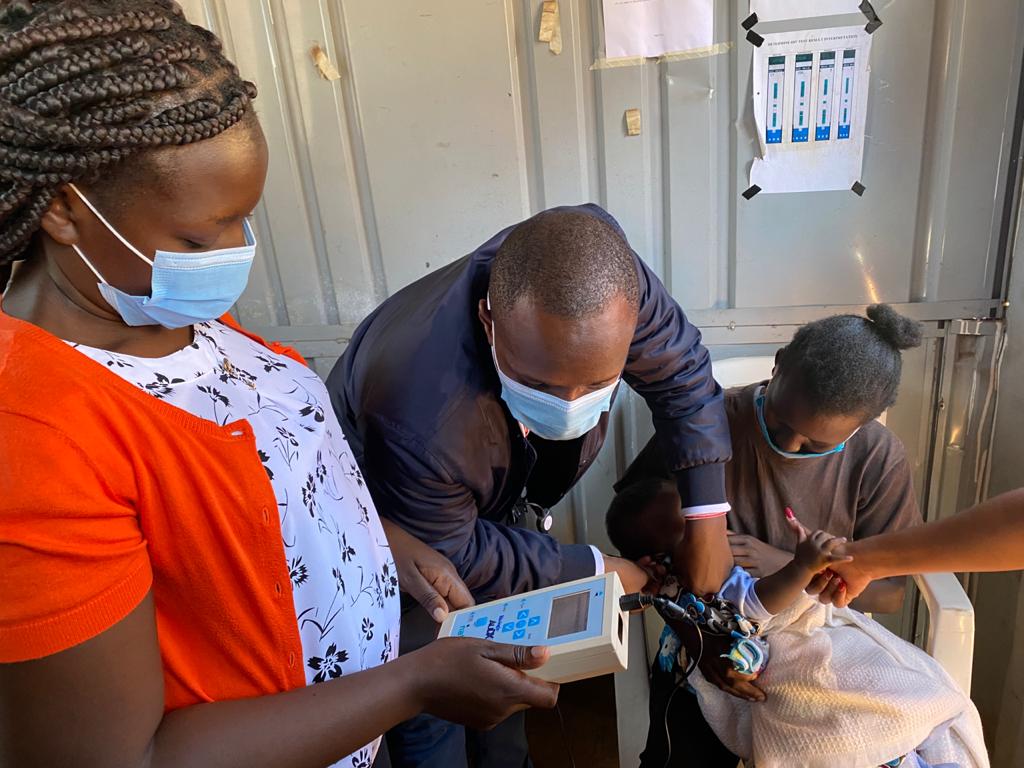Striving to develop a cost-effective and scalable hearing screening program in Kenya.
Globally, ~34 million children have disabling hearing loss. Sub-Saharan Africa (SSA) accounts for a disproportionately large number of these cases due to existing healthcare disparities. Late detection and treatment of hearing abnormalities results in speech, language, social, and academic delays. In high income countries, newborn hearing screening programs can result in the detection of hearing impairment at an average age of 2-3 months versus 2.5-3 years in countries without screening programs.



Project Aims
Aim 1:
Increase awareness of emerging screening technologies and review options for resource limited settings.
Aim 2:
Determine feasibility of non-specialist screening.
Aim 3:
Engage policy makers to determine the evidence needed to support a nationwide pediatric hearing screening program and to build a research agenda around pediatric hearing disabilities.
Impact and Outcomes
Increase collaboration between policy makers, researchers, health care workers, and relevant stakeholders
This project will foster linkages between researchers and implementation scientists, clinicians, and audiologists and frontline healthcare workers and lay groundwork needed to establish routine infant hearing screening in Kenya.
Develop and propose a universal newborn and early childhood hearing screening program in Kenya.
The policy brief is informed by the hearing health care workers training and stakeholder workshop. It will be brought to the Kenyan Ministry of Health by a working group dedicated to further ear and hearing health in Kenya.
Strive to improve the health, development, and economic outcomes of individuals impacted by hearing loss
The overarching goal of this project is to support individuals impacted by hearing loss. By providing early identification, diagnosis, intervention services, and a robust continuum of care, we can promote improved health, development, and economic outcomes for individuals impacted by hearing loss.
Funded by the Global Innovation Fund Grant
The Global Innovation Fund is a non-profit innovation fund headquartered in London with an office in Washington D.C. that invests in the development, rigorous testing, and scaling of innovations targeted at improving the lives of the world's poorest people.
Look at the GIF website to learn more
